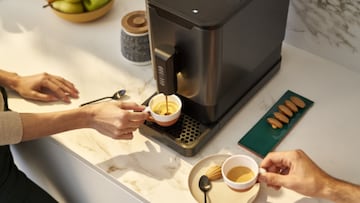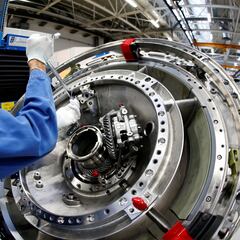What is “coffee badging”, the latest trend among employees with mandatory office attendance?
As employees are being called back into offices many are finding a way to do so but without really doing so. “Coffee badging,” the latest workplace trend.

As bosses try to wrangle their employees back into offices many are using a creative new way to resist without renouncing their job. The latest trend in the hybrid work environment is called “coffee badging.” Basically, getting brownie points for showing up at the office for a quick coffee some chit chat and then bailing.
But contrary to what it might appear, many of the employees that are doing this are not slacking off on work responsibilities but simply showing their faces in the office as expected before going to their default place of work where they have found that they are more productive.
What is “coffee badging”, the latest trend among employees with mandatory office attendance?
The idea of flexible work, or hybrid work, gained traction thanks to the pandemic upending life and shuttering offices. Many employees found being able to work from home much more productive than carrying out their duties at the office. However, many bosses are becoming concerned about a lack of cohesion among their staff. As well a lack of opportunities for new hires to be mentored by seasoned veterans.
Whereas some managers with a more traditional mindset, whether real or in the opinion of their employees, have just plain had enough of not seeing their underlings sitting at their desks.
Either way, Forbes first reported on a trend that was spotted by Owl Labs in their report on the State of Hybrid Work 2023 which found that over half of hybrid workers are “coffee badging.” Basically, 58 percent of respondents to the survey say they are regularly showing their face at the office as required and then leaving. So far, there are only 8 percent that say they haven’t tried the practice yet, but it seems to them like something they might just do.
The 2023 State of Hybrid Work U.S. report is here! 🎉
— Owl Labs (@OwlLabs) September 28, 2023
The data shows that flexibility isn't just a buzzword; it's a movement. Dive into the report to see what employers and employees really want, and how the way we work has changed since 2022.
Read: https://t.co/sCf2io0KWi pic.twitter.com/DtaVacOX91
Is “coffee badging” a bad thing or could it be an opportunity?
The answer it would seem really depends on why workers are “coffee badging” and how their co-workers interpret their behavior. Speaking to Stylist, Liz Villani, founder of #BeYourselfAtWork and the #iAM global movement, offered both sides of the coin.
On the one hand “it’s presenteeism in the most fleeting of methods,” she says but “that popping in for a coffee could be the first step to getting used to a commute, getting used to office chit chat again and generally reintegrating with office life.”
“Workers are showing up to offices out of obligation with office-day mandates coming into play now, but hopefully this can be the first step to people reintegrating and coming to appreciate working in an office and then coming for full days of their own volition,” said Villani.
However, the trend could suggest that employees after years of not having to go into the office now see it as “a chore and something to be avoided at all costs,” which is not good in her opinion and something “we desperately need to snap out of as a society.”
“Coffee badging” may cause friction in the workplace
Then there are office colleagues that are putting in their hours at the office and may view their “coffee badging” workmates with disdain. Such a situation could end up causing a rift among staff.
“Those who coffee badge regularly could also risk becoming an unpopular subculture of office workers,” says Villani. “The absurdity of this behaviour will only become more prominent and more engaged colleagues will start thinking negatively of the coffee badgers.”
Coming into the office just for a coffee? Introducing the new workplace trend of coffee badging.https://t.co/iu1rPvpJ7z
— Stylist Magazine (@StylistMagazine) October 5, 2023
Weaning oneself back into the office or ticking a box
Villian offers some words of hope: “If people are coffee badging to wean themselves back into the routine of office life, then it’s undoubtedly a good thing.”
Related stories
“Workers should make the effort to integrate with their colleagues and workplaces to improve their satisfaction, purpose and productivity.”
However, “if people are coffee badging solely to tick the box of being physically present in the office and not making any effort to interact with their colleagues, then it is a massive waste of time and opportunity,” she said.


